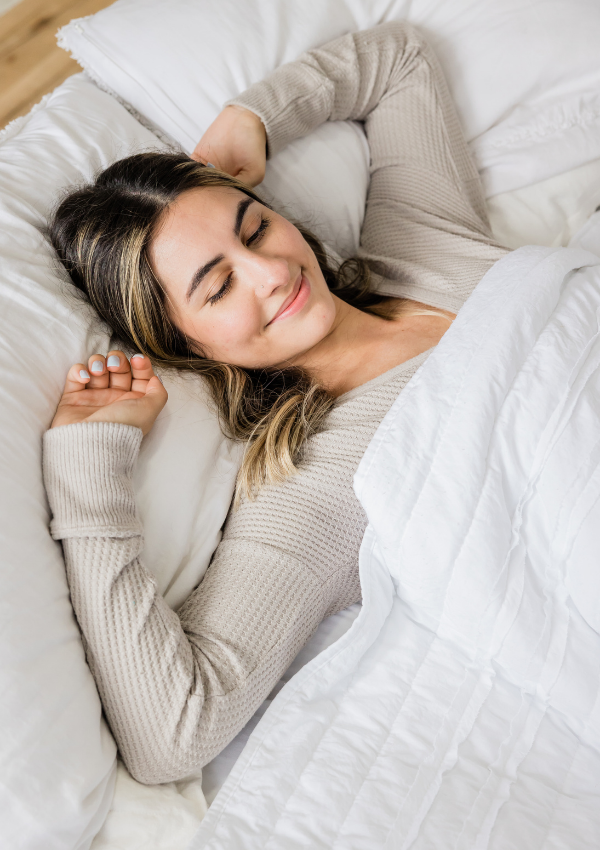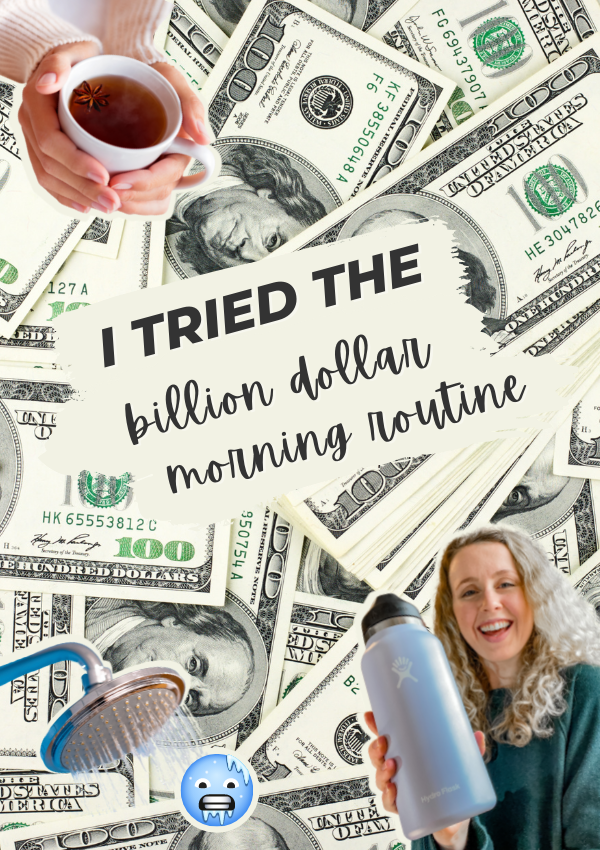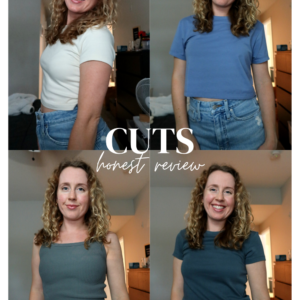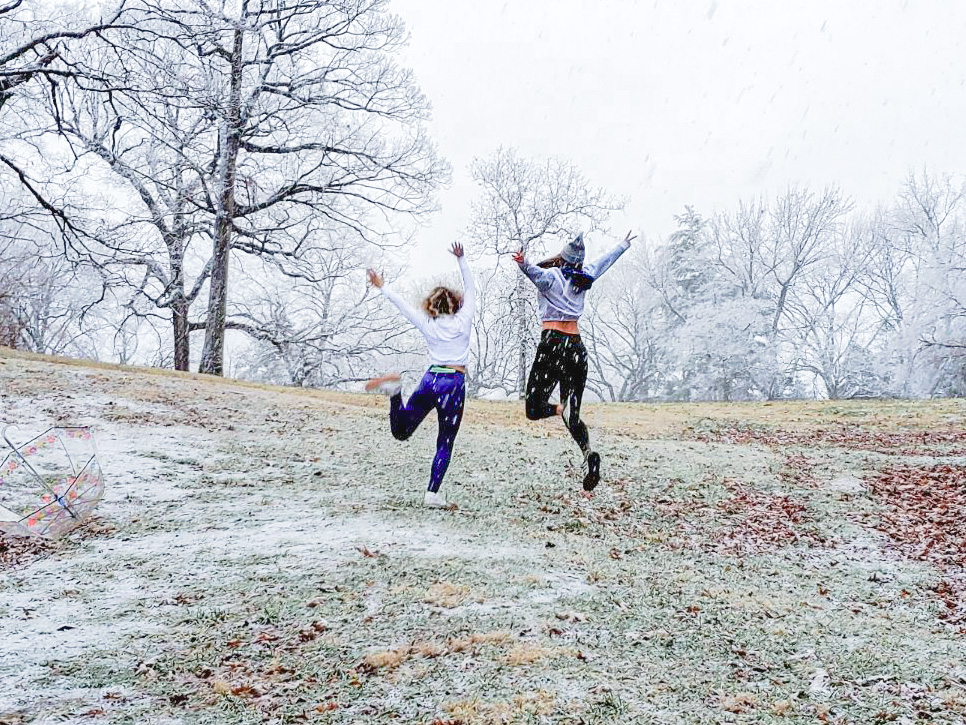For as long as I can remember, I’ve dealt with insomnia. Being a “morning person” has been my goal for 10+ years, but it’s something that (no matter how hard I tried) I just couldn’t make happen. 3am racing thoughts, being woken up 5 times a night, laying in bed for hours trying to fall asleep… These issues kept me from being able to consistently wake up before 8am. But recently, I decided to do anything & everything to make my *morning person* dreams happen. I recently listened to an episode of the Huberman Lab podcast about sleep. The tips Dr. Huberman shared in his podcast, in addition to some ideas I’ve been trying on my own, all came together to create a much healthier relationship with sleep. Let’s get into the 10 best tips I’ve found to sleep better.
Disclaimer: I’m not a doctor and the information in this article is just based on my personal experience. It should not be used in place of medical advice from a doctor or medical professional.
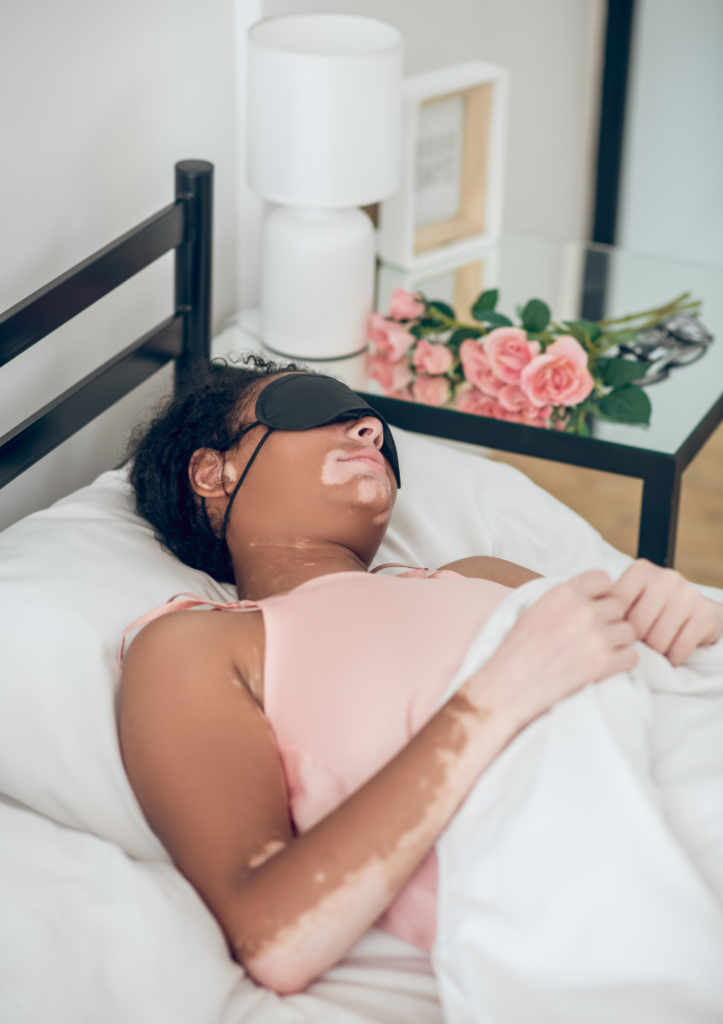
1. Read (something boring) for 30-60 minutes before you want to actually fall asleep
Lay on the couch an hour before you want to actually fall asleep, and READ. Not a thriller or suspenseful book that’s going to keep you up all night turning the pages. But find a self-improvement book, a biography, a historical non-fiction, or anything else that isn’t going to keep you up for hours trying to find out what happens next.
2. Get outside first thing in the morning
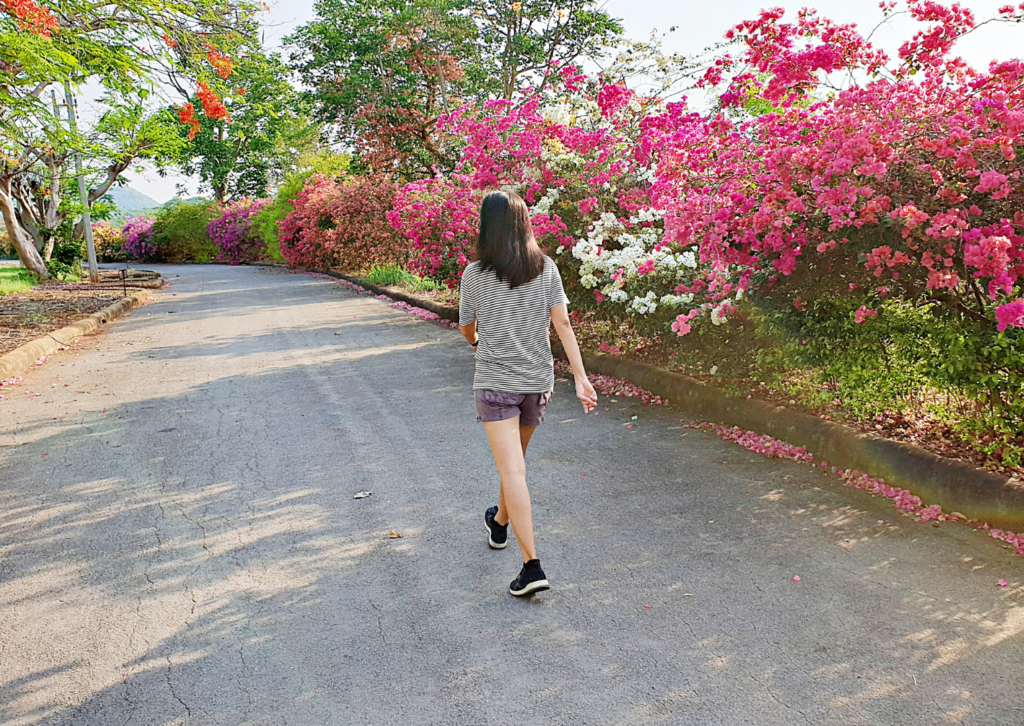
Getting sunshine first thing in the morning tells your brain that it’s daytime (aka time to be awake). This helps regulate your circadian rhythms, if you’re used to staying up late into the night, and sleeping late into the morning.
Dr. Huberman’s tip was to get outside on a walk and spend at least 5 minutes in direct sun exposure (with no sunglasses) if it’s sunny out. If it’s overcast, spend at least 10 minutes outdoors.
3. Brown Noise
I live in a busy area in Tampa and it can be LOUD all throughout the night. There have been countless nights spent trying to fall asleep, but hearing music from clubs, a loud motorcycle or people outside yelling at 3 am that abruptly woke me up.
A game changer if you live in a loud area (or if you sleep next to someone who snores, sleep talks, etc.) is a white/brown noise machine.
I’ve been listening to this *free* 12-hour brown noise sound on YouTube for months now and it’s completely changed my sleep. I prefer brown noise to white and think it’s more calming, but there are so many options to fit your preference.
I have YouTube Premium so I have the video downloaded. That way, I don’t have to worry about losing wifi during the night, etc.
4. Maintain a Consistent Sleep/Wake Schedule
Cliche, but completely necessary and one of the biggest things that’ll change your sleep hygiene.
I’ve been trying to be in bed by midnight every night and wake up around 8am. This varies and I’m definitely not perfect, especially when we have unavoidable things that disrupt the sleep schedule (flights, outings, etc.)
Focus on progress, not perfection, when it comes to this tip.
5. Cut out caffeine by early afternoon
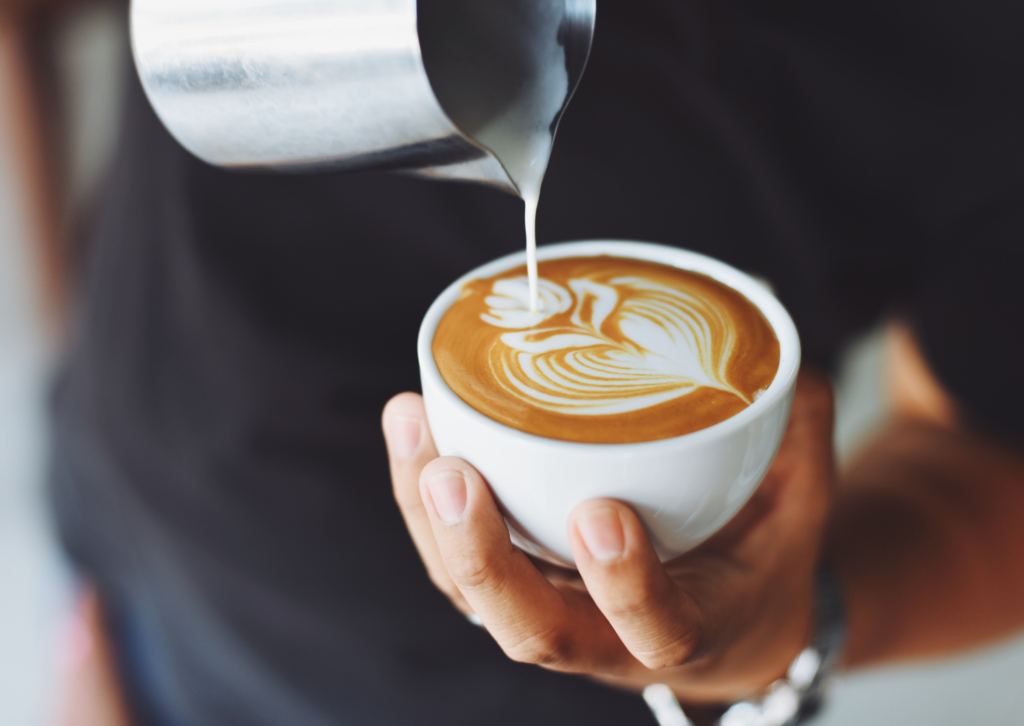
Everyone’s different when it comes to how long caffeine stays in your system. If I drink caffeine anytime after 2pm, it’ll affect me when I try to go to bed at 11pm or midnight.
Some people can drink coffee right before they go to bed and still fall asleep as soon as their head hits the pillow. I’ll always envy those people.
Figure out what works for you! If you’re anything like me and caffeine impacts you for longer than 8 hours, set a time in the day to cut it out. And stick with it.
6. No water after 8 pm (or 3 hours before you want to go to bed)
This one’s honestly really hard for me. I swear, I end up the most thirsty at 11pm for unknown reasons.
I started setting a reminder on my phone every night to stop drinking water by 8-9pm. Do I always stick with it? Absolutely not.
But on the nights I do avoid water later into the night, I’ll only wake up once in the night to pee, as opposed to 2-3x. This makes a major difference in quality of sleep.
7. Exercise (to sleep better at night)
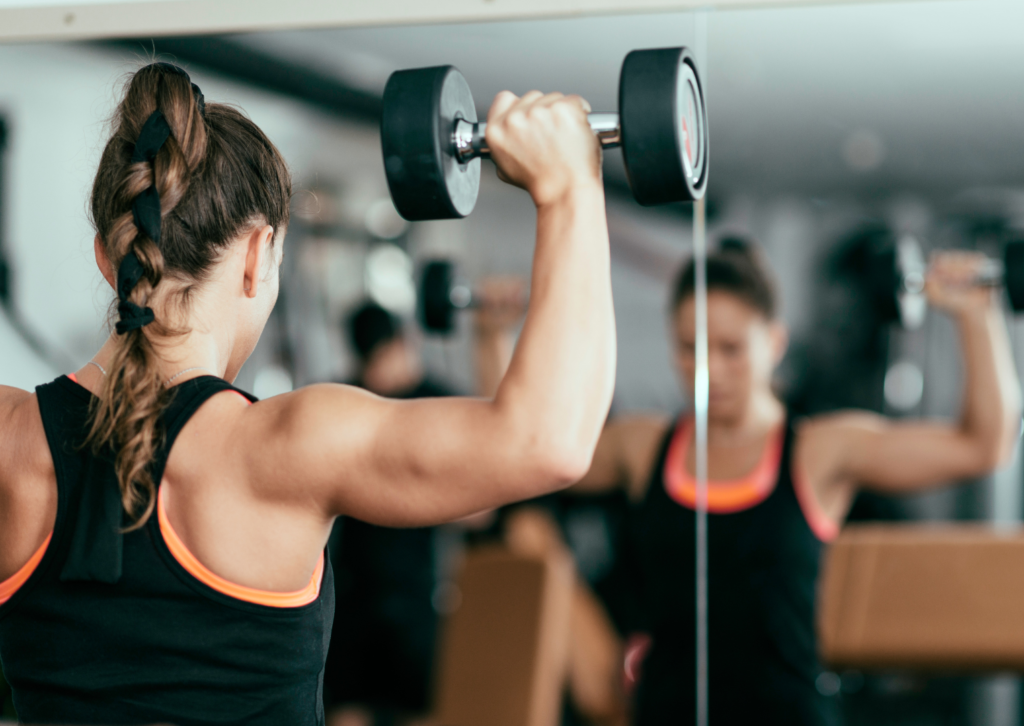
I definitely don’t do this every day, or even most days… But I’ve noticed that when I do a workout first thing in the morning (before breakfast, coffee, or anything else) I feel so motivated and productive throughout the day. It feels like you accomplished one of your hardest tasks first thing, so you can do anything.
Even if your workout isn’t first thing in the morning, your sleep will probably be better on nights thate you worked out that day.
There’s evidence that exercising during the day not only helps you fall asleep faster but also improves your sleep quality. (source)
The timing of when you should work out will vary from person to person, so find what works for you.
Personally, I prefer working out mid-morning to early afternoon. But with a full-time job, that’s often challenging. So fitting in exercise when I can throughout the day is normally what I’ll end up doing.
8. Have a solid morning & bedtime routine
Having a nighttime routine has drastically changed my relationship with sleep.
Here’s what I do:
- About an hour before bed: brush my teeth and do my (minimal) skincare
- ^ I’ll have a snack right before that if I feel hungry at all (I can’t sleep well if I feel even a little bit hungry). I’ll normally try to stick with something that won’t impact my sleep, like pretzels and hummus, multi-grain bread with peanut butter, etc.
- Put my phone in the bedroom to charge and my water bottle on the bedside table, get my phone prepped with my brown noise YouTube video
- After that, I’ll lay on the couch and read until I start feeling tired, then head to bed
- Press play on the brown noise and Zzz
My morning routine isn’t as strict and I kind of just go with the flow in the mornings.
But a few things I always do are brush my teeth, wash my face (and put on SPF), have coffee, and have breakfast. I try to get outside on a short walk when I have time too.
9. Eat (helpful) bedtime snacks to sleep better
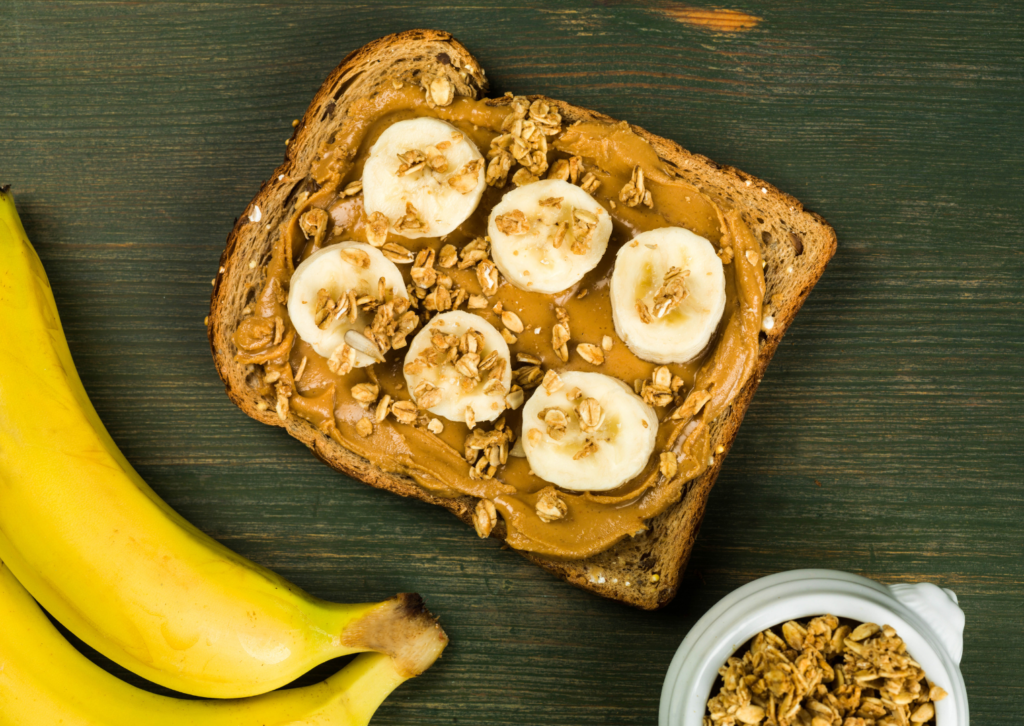
If you’re a nighttime snacker like me, you know how easy it can be to reach for cookies, chocolate, chips, etc. While these snacks all taste delicious and might curb your sweet tooth (or salty tooth?) they’re not doing you any favors when it comes to falling asleep afterward.
I’m never one to promote a restrictive mindset or tell you to cut these foods out of your diet completely. I’m a big advocate for mindful/intuitive eating and don’t believe in restriction at all.
Related: What is Intuitive Eating? (& How Does it Help You Get to Your Healthiest Weight?)
However, I realized that my nighttime snacks were keeping me up at night regularly. I’d eat sugary foods and chocolate right before bed and wonder why I was up at night.
Instead of reaching for the easy processed foods, try these snacks instead (source):
2-3 hours before bed:
- sweet potato
- honey
- white rice
- pretzels
- baked oatmeal
Late-night snacks:
- popcorn
- dark chocolate
- hummus
- almonds/walnuts/pistachios
- peanut butter
- watermelon/kiwi/pineapple
- yogurt and bananas
If you want more details on why these snacks are better options, check out this article.
10. Deal with the grogginess for a week :/

If you’re naturally a night person like me, the thought of suddenly waking up 3 hours earlier is terrifying. A tip I learned from the Huberman Lab podcast was a game changer. Dr. Huberman said to start setting your alarm just 15-30 minutes earlier, repeatedly each day for a week. Get in bed 15-30 minutes earlier too.
Do this for a week and deal with the grogginess for a bit. After that week, you’ll be at the sleep/wake-up time you desire, and you’ll have done it slowly but surely.
So for example, here was my bedtime/wake schedule for a week:
- Monday: 12 am bedtime / 8 am alarm
- Tuesday: 11:45 pm bedtime / 7:45 am alarm
- Wednesday: 11:15 pm bedtime / 7:15 am alarm
- Thursday: 11 pm bedtime / 7 am alarm
- Friday: 10:30 pm bedtime / 6:30 am alarm
- Saturday: 10:15 pm bedtime / 6:15 am alarm
- Sunday: 10 pm bedtime / 6 am alarm
That week was rough, not gonna lie. But once I got to my desired sleep/wake-up time, it felt easy and natural to go to bed and wake up at that time.
Dr. Huberman’s biggest tip was to live through the grogginess that week. Even if you’re feeling tired, you should still get out on a morning walk, do your normal workout routine, eat breakfast, etc. It definitely takes some determination and discipline, but if I can do it, so can you!
And there’s always coffee. 😉
I hope this helps you sleep better!
Try to just implement a couple of these tips at a time and see if it helps! I’ve been doing most of these regularly and my sleep has never been better. I’ve dealt with insomnia for most of my life, so I definitely still have nights where I’m kept up by my anxious thoughts, and no matter what I do, just can’t fall asleep. But for the most part, my sleep is really great now, and I know I owe it to a lot of these strategies.
If you enjoyed these tips for better sleep, you’ll also like:
- How to Organize Your Life (with 7 Simple Habits)
- The EASIEST Way to Create Better Habits
- How To Create A Realistic Health & Fitness Routine That Works For YOU
- My Monthly Productivity System (Habit Tracker + Goal Planner)

